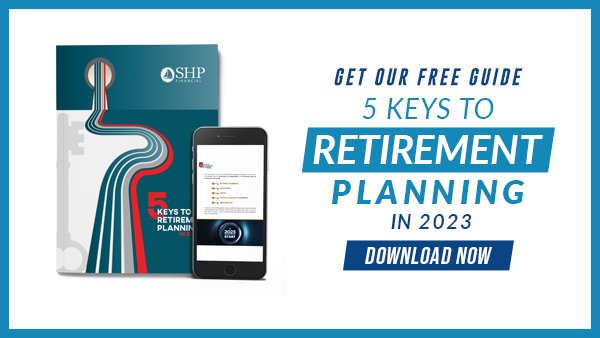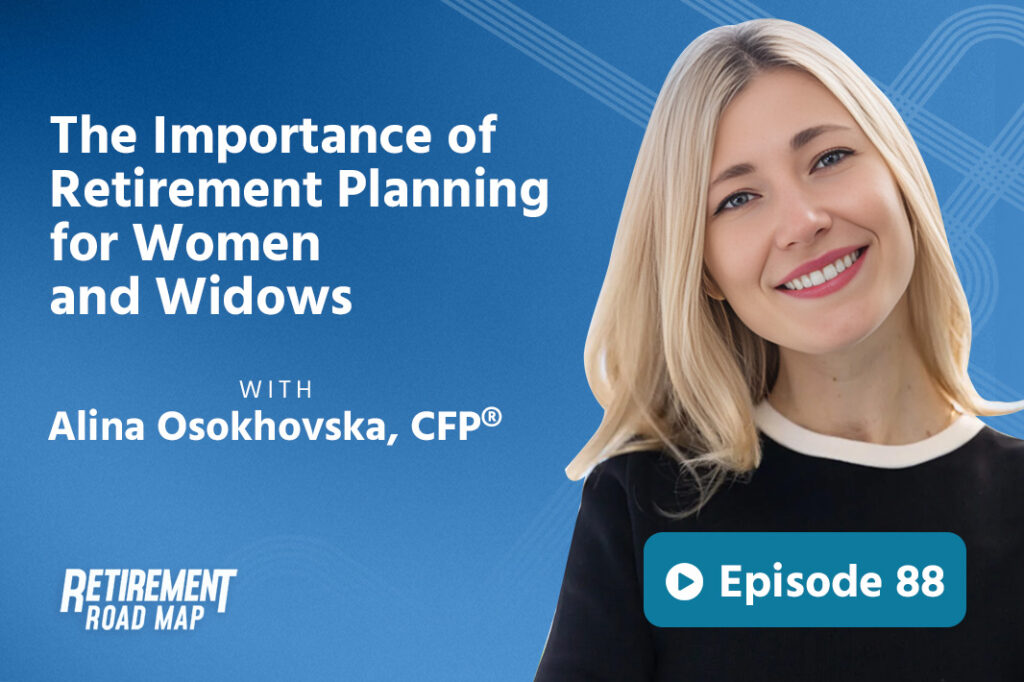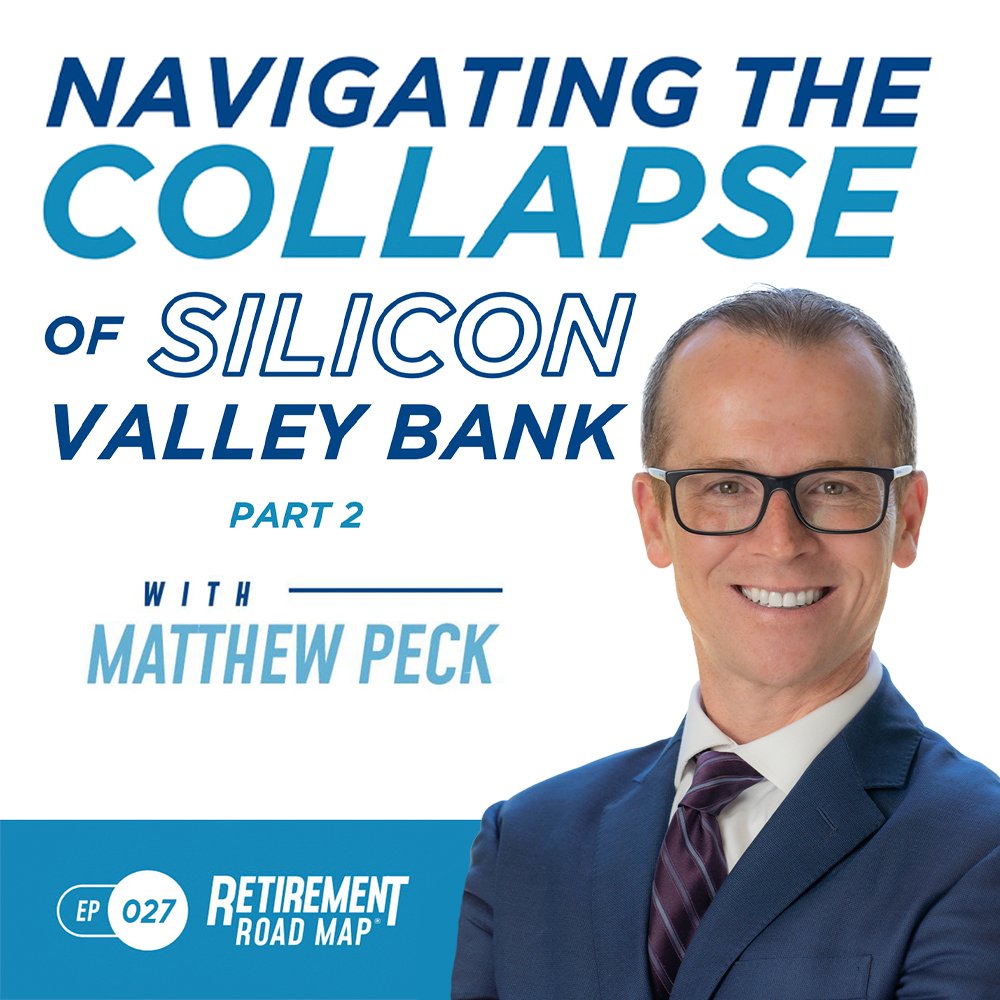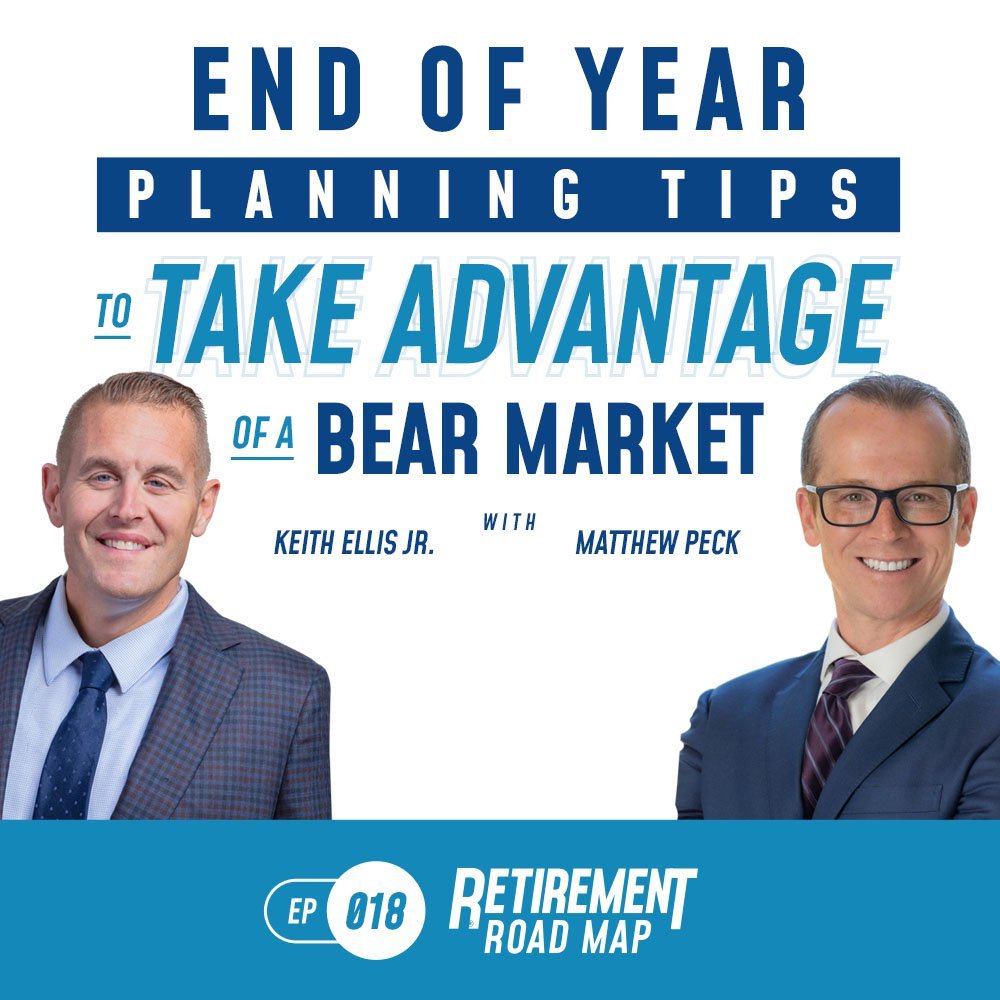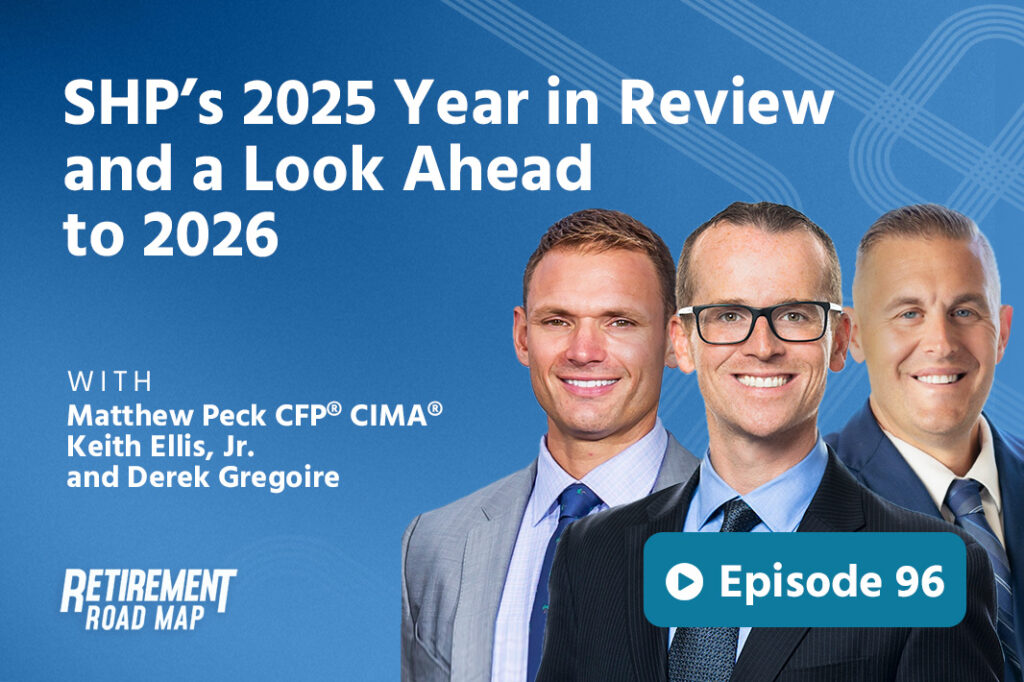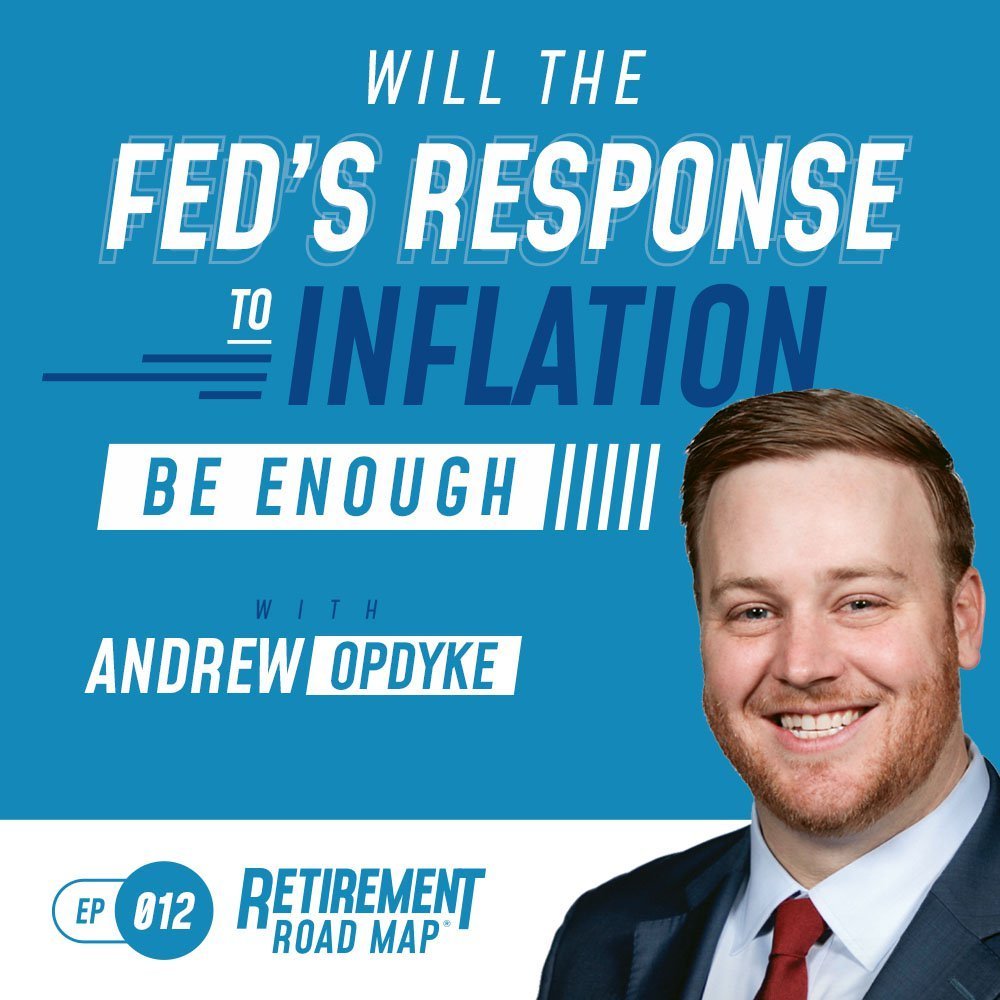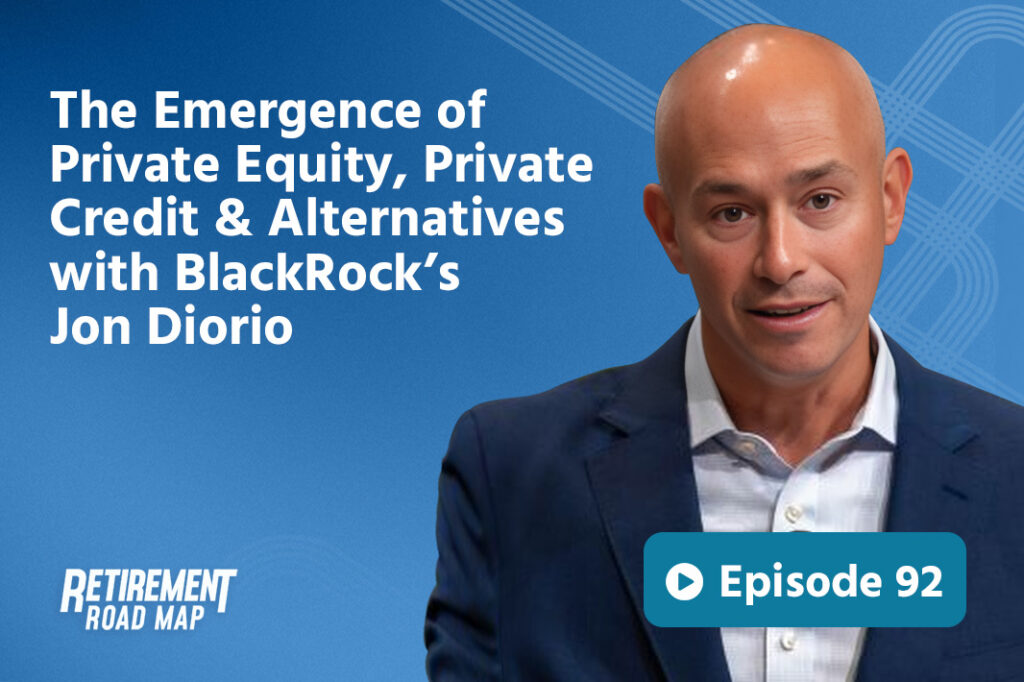A personal relationship without trust is doomed to fail. And in business, it’s no different. It’s one of the things we take pride in at SHP because we know our clients trust us with more than their portfolio or retirement, it’s their future, and it’s a responsibility we don’t take lightly.
Joining me to talk about the importance of trust in today’s financial world is John Capuano. John is the co-founder of Lone Beacon, the nation’s most sought-after sales and marketing company in the financial world. We’ve been working with John for over a decade to keep our finger on the pulse of retirees’ habits, mindset, and thinking, and his research has always been fascinating.
In our conversation, John shares wisdom from his decades of experience as a marketer to talk about generation gaps in today’s market, how to build trust in 2022, and what retirees really want to get from working with a financial advisor.
In this podcast discussion, you’ll learn:
- What John learned from talking to businesses running ads to the wrong audiences on the wrong networks.
- How retirees invest to purchase financial freedom and how important trust is before they make those decisions.
- Why authenticity and sincerity will always create engagement–and why John believes it can’t be taught or marketed.
- Why John believes that business owners and their staff should treat clients like nervous fifth graders to maintain the relationship.
Inspiring Quotes
- “You maintain that relationship and that level of trust. And it takes a lot of time, but it’s so important if for no other reason than to make people feel safe.” – John Capuano
Resources
- John Capuano
- Follow John Capuano on LinkedIn
- Lone Beacon
- Follow Lone Beacon on Facebook | LinkedIn | YouTube | Twitter
Keith Ellis, Jr.: Welcome back, everybody, to another edition of the Retirement Road Map podcast. Today, we’re lucky enough to be joined by John Capuano. John is one of the co-owners of Lone Beacon Media in Boston as well as– is it Miami now, John, or Florida?
John Capuano: Yeah, it is somewhere in Florida.
Keith Ellis, Jr.: Okay, yeah, he’s somewhere. And what they do, and we’ve been working with John upwards of a decade now in all different facets of our business. And we think this episode is going to be really neat for folks to kind of dive in and listen to some of the insights of someone who kind of studies the retiree, studies their mindset, study shifts in thinking, and just kind of where we see things going in the future. And John has done a lot of work in a ton and ton of data and a ton of research on retirees, say over the last seven to ten years as well, both digitally and through different phone questions and things along those lines. So, thank you, John, for joining us. We appreciate it.
John Capuano: Thanks, Keith. Glad to be here.
Keith Ellis, Jr.: Yeah. So, John, kind of give us an insight or kind of maybe a little bit ahead, we were talking actually right before we started here, and I thought that was a really good way to lead the conversation. I don’t know if you mind picking up that conversation or kind of reiterating what it is you were saying.
John Capuano: Yeah, I don’t know why, but I’ve always really been interested in demographics because I’ve always been interested in marketing. And it’s hard to be a marketer without really understanding, getting inside, I guess, people’s heads a little bit. And I’m reminded of when we were kids, there was always that kind of push and pull of my parents are always telling me to grow up or to act my age, and it’s kind of like, oh, you want me to grow up or act my age? And it’s still kind of like that.
And my kids now, ironically, are usually telling me to act my age, but it’s not like they’re trying to tell me to act like an older person. So, I think that’s kind of an odd thing. So, when we started, and actually, the cofounder Greg Dinetz and I met in New York when we were managing our WOR Radio Network, and it’s this big network of a bunch of radio stations, talk stations, and it was in the early 90s. We started in the early 90s.
And the issue had become, for us, we had to do a bunch of business with a bunch of ad agencies basically on Madison Avenue. They were 100% riveted on the baby boom population, and at that time, the baby boom population was 18 to 42 or 43, etc., and that’s all they wanted, which was great, except our audience was all 50 and over. And so, we would walk into these ad agencies and they boot us out right away and they’re like, you’re too old. And we’re like, it didn’t make sense. And it still today doesn’t make sense and it’s run the same way.
And so, at that time, Greg and I were like, well, why are we wasting our time with a 24-year-old media buyer that’s telling us, our listeners, don’t buy stuff? And I would be on the, whatever, West Side Highway, and I’d see a bunch of older people in Buicks and in Cadillacs, or I’d see my parents eating chicken. And one of the first, so we decided going straight to the companies. And so, we had a meeting with Frank Perdue.
And at that time, somebody in my station knew Frank Perdue. And so, we went to lunch with him, and I’m like, you know Mr. Perdue. And his ad agency would not buy our radio station network across the United States because they thought we were too old. And he was probably mid-60s at the time, maybe older. And I’m like, you eat chicken a lot? And he’s like, yeah. I’m like, does everybody you know eat chicken? He’s like, yeah. And I’m like, well, your ad agency is only buying younger people and they’re excluding everybody your age and they won’t buy the media against them. And it just seems odd, right? And he’s like, yeah, that’s totally out.
And he called. I forgot who their ad agency was, it was a big one, obviously. And he called them. He’s like, why aren’t you buying the WOR Radio Network? And they did. And the agency was super mad at us for doing that. But then we just started doing that with all the clients, we went to Buick and we’re like, hey, I know as much old people buying Buicks. Why is your ad agency buying people, like only the young end of the baby boomers? And so, we started to realize, and at that point, baby boomers, I remember when it was such a big deal when– I think it was Mick Jagger or Bruce Springsteen or one of those guys turned 50. And at that point, I was in my early 30s. I’m like, whoa, those people are super old. Now, I wish I was 50 again. I know I look much, much younger, but…
Keith Ellis, Jr.: Not that far from it.
John Capuano: But anyway, at that point in time, the whole world was embracing this demographic, the younger demographic, and ignoring the older demographic. And so, now, you fast forward to today, and I look at my twins, as you know, they’re 29. And our lives in many ways are very similar in terms of the stuff that we buy and the things we want base that are marketed to us. But my wife and I are in a position that we can afford a little bit more now because we’re older and we have that under our belt. But still, then my kids would and that whole generation, but still the whole media and marketing community is always looking at the youngest possible denominator, and a lot of times is ignoring, which is now my generation. And I’m still happily the younger side of the baby boomers, but it’s still really, really misunderstood.
And so, we just did this study not long ago, it was like a perceptual study. And we wanted to ask and we surveyed thousands and thousands of people who were baby boomers. How do they perceive themselves? At what age? We ask them a bunch of questions, ask on how they perceive themselves. And one of the options was 10 to 15 years younger or your own age or 10 to 15 years older, and most of them said 10 to 15 years younger. And what’s odd is still, today, people at ad agencies so misunderstand them when they try and market to them. It’s usually somebody in their 20s trying to create a creative concept, and they’re looking at me, who’s 59 as somebody that’s 75, and I’m looking at myself as 59, who’s 45. And so, they’re off by like 30 years.
Keith Ellis, Jr.: Right.
John Capuano: So, anyway, it’s a weird phenomenon that’s going on and it’s getting more and more confusing.
Keith Ellis, Jr.: Yeah. And it’s interesting that you say that. I’m 45, I think of myself as significantly younger, and it’s certainly a mindset, but I do understand most of the ad agencies do focus on the younger generations. Do you think that’s a kind of an attribute to, for lack of a better way of putting it, getting them into their products at an early age? Or because like you said, from an affordability standpoint, some of these iPhones or whatever it is, they’re $1,000, $1,500, a high school kid probably unless he’s working quite a bit, can’t afford that, but you probably can’t afford it. So, it’s like why, I guess, if there’s a reason or kind of a thought process behind why they’re targeting certain demographics?
John Capuano: Yeah, it’s a good point that you’re making. And I guess conventional wisdom is they want to catch people before they’ve developed any habits.
Keith Ellis, Jr.: Sure.
John Capuano: And before they capture brand loyalty, that’s just a concept that I think is outdated. And I think it was outdated 30 years ago. And the reality is, especially today, from the other surveys that we’ve done and everything that you would read, people are as loyal to their brands. There are so much options available to us today because there just are and because it’s so easy to get bombarded by them because like with this thing, we just see them all the time. So, it’s easy to find a better option.
And so, the notion that we have to catch them younger, which I don’t dispute, but there’s a much larger market share, especially for most businesses when you’re considering the life of any customer anyway. You’re almost better off, like don’t ignore that demographic, I would say. And it’s unfair, I think, to this demographic that still is very vibrant. It just was different when I was a kid. I looked at my parents as much older.
Keith Ellis, Jr.: Right, I agree.
John Capuano: You would dress differently. Think about it like most people shop, if you’re in your 50s, you’re probably shopping at basically the same stores as your kids would or are buying the same sneakers or shoes or outfits and stuff and fashion and you might watch even a lot of the same television shows and movies. It’s not that different. It was a lot different, I looked at my dad when I was young, he wouldn’t wear stuff or I wouldn’t wear stuff that he would wear, or the hairdos that my sister had were different than what my mom had. So, I don’t know, it’s all kind of melded together.
Keith Ellis, Jr.: Yeah, that’s definitely a shift because my son always is trying to get me to wear the same sneakers that he has, and we do.
John Capuano: That’s funny.
Keith Ellis, Jr.: I feel like he has better taste than I do. So, as a parent, you just kind of tag along and try to look like the cool dad, right? Is that what it is, you think?
John Capuano: Absolutely. You look at your kids and you’re like, they must be doing– I remember I started getting Yeezys. Did I tell you about that?
Keith Ellis, Jr.: Yes.
John Capuano: And I was so proud of myself. And they’re the most comfortable shoes on the planet, by the way.
Keith Ellis, Jr.: Right.
John Capuano: And I remember one of my kids are like, are those Yeezys? I’m like, yeah. They’re so impressed, but at the same time, like, oh, brother.
Keith Ellis, Jr.: How do you know about this? You know what I mean?
John Capuano: I know. But every once in a while, I’ll see a young person, like at a supermarket or something, and they’ll be like, hey, nice Yeezys. And they look at my feet and think, that’s a cool person. And then they look at my bald head and they’re like, oh, well, you’re pretty old.
Keith Ellis, Jr.: They say that and you stand a little taller and then you’re like, all right, I feel good.
John Capuano: Right.
Keith Ellis, Jr.: So, like I said earlier, you guys are focused on working with financial firms, and we don’t want to talk necessarily about marketing in regards to financial firms. We just really kind of wanted to dive in a little bit in regards to what you’ve seen working with firms all around the country. And we work with some firms all around the country too through groups that we kind of help out and coach, but that’s not on the marketing side. That’s just trying to help them run a better business, treat their clients, treat the families they work with, make sure you represent them in the way that they should be represented, and really do the type of planning that we think. And most people that work with us think needs to be done in the way that it should be done.
But from a marketing standpoint or from a demographic standpoint or from a shift standpoint, I guess, what are you starting to see as what retirees are concerned about, what retirees are looking for? Just kind of dive in a little there if you don’t mind.
John Capuano: Yeah. It’s like 90% of what we’re just riveted on, and so, we’re always kind of thinking and studying about this stuff. And there are two things that are true about this demographic, and particularly, with big purchases or life decisions, I should say, and it’s number one, is trust versus skepticism. And trust has become so much more important in how people make, and particularly, this demographic makes decisions. And it’s harder, I think, a lot of times to trust because there are so many varying points of view coming at you.
Keith Ellis, Jr.: Sure.
John Capuano: And like everybody has no, do it this way because it should be this way or no, this way because it should be this way. And it becomes harder for people to just trust because there are people who are afraid that they’re going to make the wrong decision. So, trust is really, I think, the biggest thing. And making things easy is the other thing.
And in a business, I was talking to somebody a few months ago. He was like in the financial world, people sell investments, and the process by which you invest, and people, retirees are buying freedom and trust. And that’s it. And the more complicated that we make it, the harder it becomes. And our advice has been just to simplify it as much as possible. It’s kind of like nobody needs to know how the sausage is made. Just let me know what it is, at least to get in the door. Obviously, your business is as deep as I’m into your business. I still have more questions than answers about how the sausage is made. I know generally how it works, but it’s so wildly complicated.
I’m a fairly bright person. We’ve been in business for 10 years. We’ve worked with a lot of financial people in the broadcast business before this. I don’t know how you do what you do. All I know is that you have a very specific process, you have an internal process that once people walk in the door, it makes sense for them to succumb to because it’s like, all right, this is what you do. Here’s my stuff, and I want to walk away. So, what we see if there’s a trend is no matter what you’re buying, trust is the very first variable and people have to earn trust. And number two is, how are you making a very complicated thing simple for them? And so, I look at those as kind of the two most important things that people are looking for.
Keith Ellis, Jr.: Yeah. And it’s interesting you say that because it kind of relates to myself and Derek that our firm here as we sit with folks is, most folks, you’re right, are just trying to say, look, freedom, right? Can I retire? Am I going to be okay? That’s really the first question that we get.
We’ve accumulated all these assets. Maybe they’re in three or four different places or maybe you’ve done the work and consolidated them, but no one’s ever wrapped their arms around in everything and kind of said, look, you’re going to be okay and kind of here’s why and build that that plan. I think that what I see more now is more and more folks are looking for and should be demanding a full financial plan where everything is looked over all the time, your taxes, if you have questions on health care, making sure your income is sufficient. And depending on market conditions, maybe it’s shifting where you’re taking money from or your legacy, making sure that your assets are tied to a strategy to make wealth transfer efficient, and then making sure, like I said, your income and your investments meet your needs.
So, it’s funny, so many folks come through our door and really embrace what it is that we do and see the passion that we have for what we do and the passion that we have working for the families that we work with. And we’re lucky that a lot of families do see that because they’ve taken a leap of faith in us and we’ve taken a leap of faith in them to make sure the relationship works together. It’s a really nice symbiotic relationship, but we’ve seen a massive shift of those folks that came on and that have been working with us. We’re really reaching out to friends and saying, look, are you getting all this? And if you aren’t, why not? Laws are ever-changing. Tax codes are ever-changing. Whatever it is, there are always going to be changes.
And if it’s me and I’m retired and I didn’t know what kind of the field that I’m in maybe disqualifies me from saying this, but like, if I’m someone that’s retired and I’m on a beach in Florida or Aruba, wherever it is, or visiting my grandkids and I don’t want to be studying the law changes or the tax codes. I want to be focused on my kids and my grandkids or my retirement, my family, my life, and the rest of my life. And I think that’s kind of the freedom that you’re describing and I think that’s what most people are looking for.
And you’re right, the easiest way that you can show people that freedom but knowing that it’s almost like Matt does a really good example of saying, look, an executive bill that goes to the president’s desk might be 2,000 pages. There’s no way that the bill was created on Monday and on the desk on Friday that he read the 2,000 pages. So, he reads maybe the bullet points at the top, knowing that those pages are really the chunk of the bill and that the Congress or whoever is going to execute that is executing it. So, I kind of think that’s what you mean, and I hope that makes sense.
John Capuano: Yeah, that’s a great analogy, like how a bill works because the reality is there are thousands of pages in a financial plan if you really had to dig through everything.
Keith Ellis, Jr.: Right.
John Capuano: So, the challenge is how do you make it? Knowing that trust is always going to be the most important thing because it’s almost the only industry I can think of that everybody is sharing exactly the same thing. Like everybody has the same stock market, the same access to insurance products, the same access to the laws of accounting and Social Security, all of that. And so, that probably makes it a lot harder for people to know.
So, how does people use the same products but in a better more really comforting, might be a good way to say it, way? And so, then the challenge, I guess, is how do we work toward making it not simple? So, what percentage of people want to know how the sausage is made versus just are like, you know what? I shopped a couple of places or they see your offices and they realize, gee, these people are good people and they’re nice offices and it seems like a place I want to do business. And all of us, I don’t want to take anything away from anybody, but sometimes, it comes to be kind of a popularity contest is reality. We like to do business with people that we like. And it’s easy to walk into– like I look at a lot of our most successful people and you walk with them. You make it easy for people to trust you. But then that’s part one, and then part two, so once people are in, what percentage of them want to know what all those says in the pages versus how can I make this super easy?
Keith Ellis, Jr.: Yeah, I would say 5%, maybe, not even. It’s very rare. That being said, I think we as a firm go over and above to educate as we build, I guess, is the way I would put it. So, we’re educating the families we work with on each step of the process or each step of the build of their financial plan or each allocation or each life insurance, whatever it is. Whatever strategy or tax planning strategy, we do want them to understand what it is we’re doing, one; two, the impact to them in the near term and in the long term and both positive, or if we’re not going to execute it, why we’re not going to execute it and why it’s a negative?
So, I would say it’s more about education than saying, hey, look, I want to read 2,000 pages of a mutual fund report, you know what I mean, or whatever it is. And also, it’s funny you say that about trust because you kind of look back. I look back on my life, and Derek and Matt are the two other owners of the company, and you look at our parents and they were all pretty blue collar. My dad was a cranberry grower. My mom was a kindergarten teacher. She loved it, but she took time off to raise the kids. Derek’s father was a plaster, mom was a nurse.
So, you kind of see that. And what they instilled in us, and my parents, especially, was always to do the right thing. It’s always going to work out. It might not be the fastest path. It might not be the most comfortable thing sometimes if you’ve made a mistake. And there are times, obviously, I’m not perfect that you make a mistake, you own the mistake, and you move on, right? And you work with whoever it is to correct the mistakes and then go. But I think, that was instilled from the first day I remember, kindergarten all the way through until now. It’s like, to this day, my mom still says the same things to me. And yeah, I think a lot of that has to do with each of our upbringings and how close our families were and really what our parents, each one of our parents instilled in us really kind of reflects a lot of how we’ve built our business.
John Capuano: And that goes back to when the study that we did about how we’re trying to be more the generation sees himself as younger, and that’s a big part of our identity, but at the same time, we still possess the same values more. I think even as you get older a little bit, like respect those values. And it’s like why isn’t it like– and respect the nostalgia of the way it used to be. And I do think that particularly, with this demographic, and I look at it like with you guys, I remember when we first became working together, like 10 years ago, and you were 10 years younger. And I remember some of the conversations that we would have.
Keith Ellis, Jr.: 25 years, mentally, though.
John Capuano: That’s right. And I remember I had this conversation, I think, with Derek about getting people to trust the fact that you’re younger than some other people that you’re working with that might be easier to connect with somebody older from a value standpoint. And I still say this, I look at it as older people look at younger people, I think, as an advantage because I think people are smarter today in some ways than when I was growing up because you have access to a lot more.
And then the other thing, I think, that is an advantage is just like you don’t want to outlive your doctor, and that’s a good thing. You don’t want to outlive your financial advisor. And so, I don’t know, like I think those are pretty important things. And I think that those values are even more important for the baby boom generation. That’s resonated because that’s exactly what every one of our studies and every other study that we read about shows is that they respect those values. And when they’re talking to somebody like you genuinely who’s younger but grew up with that, and I look at it, we’re going on a family vacation with a couple of other families, and everybody’s kids are around the same age.
And we’re having this conversation the other day, my wife and I, about how fortunately our kids and our friends’ kids are all of that same culture of belief and that, like the values. So, it’s still a thing. Maybe it’s natural for every older generation to think that, oh, it was different when we were younger, and maybe it just manifests itself differently to younger people, but there’s no mistaking that those values resonate more, especially today, because we live in such a wacky world.
Keith Ellis, Jr.: Right, yeah. It’s funny, I relate to the nostalgia part a lot because I bring a lot of the things that my parents used to do with me. And I, for lack of a better way of putting it, push it on my kids. And sometimes, they’re like, yes, I can’t wait to do it. And sometimes, they’re like, why are we doing this again? Because we have to, it’s nostalgia. This is the way I was brought up. This is the way you guys are being brought up, too. So, it’s funny you say that.
John Capuano: We were just talking, Missy and I, she’s my wife, about favorite meals we had as kids.
Keith Ellis, Jr.: All right.
John Capuano: And it was such a crazy, fun, nostalgic conversation, but it really does put you in the happiest place, like frozen dinners or cube steak. Is that even a thing anymore? Do you know what a cube steak is?
Keith Ellis, Jr.: I don’t know exactly, but I remember it.
John Capuano: Cube steaks are not good. It’s like, I don’t even know what part of, I’m assuming it’s some kind of a cow, part of it, it is, but it’s not very good. And just like beefaroni and SpaghettiOs and the…
Keith Ellis, Jr.: It’s also what my mom used to make, the most random dinner. But yeah, it brings back memories. You just asked, you brought that question up, and three things came into my mind. But yeah, to circle back, it’s definitely 100% about trust. And I also think, as meeting with a couple the other day and great people, met them right down in our Hyannis office, and they had been working with an advisor for 25, 30 years. And the advisor has done very well for them, obviously. The market’s done really well for maybe recently but done very well over the last 10, 12, 13 years.
But as you start to dive into what it is, and you really kind of peel back the onion and get to know them as people, their goals, and things along those lines, it was amazing to see the shift in their mindset because they knew that they were coming to a decision point in their lives, continue to work or retire, but they also knew that they needed more than just someone to manage their ETFs or their mutual funds or their stocks. They needed a written financial plan that really forward looks 25, 30 years that they could see some tax planning involved as well, which is extremely important to get ahead of. They knew that there was going to be an attorney there to be able to assist them with anything that they needed, someone to help them with their Medicare decision.
So, it’s really kind of created, like it’s easy to go through life putting money into your 401(k) and saving money during your working years, but you really only get one chance to retire and you have to make sure you’re doing it right. And it kind of comes back to that trust thing. It’s like you could see the amount of just our conversation, the way we related to each other, and how easy the conversation was for me. And that’s 90% of the conversations I had because I’m just a real person and I’m just real with people. And like you said, simplicity, simplicity, simplicity. They just wanted to know, are they going to be okay? And once they knew that they were going to be okay, how do we take that okay and enhance it? And that’s really what we showed. That’s really what I showed them.
John Capuano: And the realness is one of those things that it’s just difficult for me to say, but authenticity is super important, and some people reveal themselves as just better people because they are, and you are drawn to them. And that really is a gift. And you can look at that anywhere. You look at how many people when Tom Brady was playing football here at a number 12 jersey, walking around, or there were 12 and 87 and 11. And then there are all those other numbers, but you just didn’t see them because those people just had risen to a certain point. Or you look at any sport or any profession, and it’s just the way life works.
And an advantage that you can’t market and you can’t teach that you’re describing is some people are just more authentic and engaging and sincere. It’s a hard thing to bundle up together. And it makes your life a lot easier if you’re all of those things, and I’m saying this because we’re on the call, but you guys are all like that. That is a humongous advantage, and a humongous disadvantage if you weren’t gifted with that.
The other thing is I ask our staff to treat me and all of our clients, like nervous fifth graders. And the reason is like you– so that conversation that you had with those people that you were describing. So, they meet with you. They realize that, they walk in your office, they’re like, oh, this is a nice place. Everybody seems like they’re happy and they’re nice people and pretty smart. And then I had a great meeting with Keith. Here you go, ready to do business. And then what?
And so, that’s when the nervous fifth grader stuff comes in. And I know you guys are good at it, and that is never– just be in front of them all the time. And you’re talking about educating because knowing that, like, what’s going on in the world right now, just in every possible way, and how it’s going to affect potentially our retirement, I just want to know that you’re around. I want to hear from my advisor. I just want to know that if I need them, they’re a click or a call away. I want to know that they are getting a share of my attention on a consistent basis. And I know how hard you guys worked on that.
And it’s something I tell business owners in the financial world all the time. We don’t have a choice. You have to treat people like nervous fifth graders, and they need to be assuaged when you have the responsibility of their life’s savings. That’s such a humongous responsibility. And for them to at least know, even something like this, that you’ll send them and they’ll know that, all right, I know a little bit more about these people and I’m in their face all the time. So, you maintain that relationship and that level of trust. And it takes a lot of time, but it’s so important if for no other reason than to make people feel safe.
Keith Ellis, Jr.: And you’re right, it is a huge responsibility. And it’s not one that obviously we take lightly, hence all the planning and thought process that goes into each plan. So, John, let’s call it quits there. I think that was really good and I really appreciate your time. Any parting thoughts or anything else that you want to leave us with or anything else?
John Capuano: I would say thank you for having me on.
Keith Ellis, Jr.: No problem.
John Capuano: You guys are going back to the trust and doing business with people that you like doing business with. And we have this conversation all the time internally with Greg, my business partner, that you guys are people that we trust and like so much. And it makes doing business so much better. And you’re right, none of us are perfect. And no matter what you do, nothing’s perfect, but you’re in kind of a different league in the world of authenticity and trust, and that’s so valuable.
And the one other thing that I’ll add to that is we were talking about, and our company, I think, feels the same way. So, the nervous fifth grader thing, you guys over-hire, if anything. Like you want to make sure that there’s beyond ample amount of staff to make sure that you’re providing that care that you need. And it’s a commitment and it’s an expense on your part as a business owner, but I look at it the same way, and it’s smart from a long-term business standpoint because you’re going to retain people longer, but also from just your own personal peace of mind or my own personal peace of mind, rather than have people spinning like 42 plates and hoping everything gets done, I’d rather have more people maybe than I need and just to make sure that all of our clients get what they need and our staff isn’t overworked and that’s not lost on us. And I think that’s one of the reasons why you guys are on such a different level than all of your peers.
Keith Ellis, Jr.: Yeah, we look at it as an investment in the families that took a chance on us. It’s just more hands on deck to help execute and do what needs to be done. So, I appreciate you saying all that and noticing the care that we do put into what it is that we do and why we do over-hires, that’s the reason. It’s very, very important in our opinion to over-serve, so.
John Capuano: Yep, for sure.
Keith Ellis, Jr.: Again, thanks a lot for your time today. Appreciate it. And I look forward to catching up with you soon. Take care.
[/fusion_toggle][/fusion_accordion][fusion_text columns=”” column_min_width=”” column_spacing=”” rule_style=”default” rule_size=”” rule_color=”” content_alignment_medium=”” content_alignment_small=”” content_alignment=”” hide_on_mobile=”small-visibility,medium-visibility,large-visibility” sticky_display=”normal,sticky” class=”” id=”” margin_top=”” margin_right=”” margin_bottom=”” margin_left=”” font_size=”12px” fusion_font_family_text_font=”” fusion_font_variant_text_font=”” line_height=”14px” letter_spacing=”” text_color=”” animation_type=”” animation_direction=”left” animation_speed=”0.3″ animation_offset=””]No statements made during the Retirement Road Map® podcast shall constitute tax, legal, or accounting advice. You should consult your own legal or tax professional on any such matters. Information presented is for educational purposes only and does not intend to make an offer or solicitation for the sale or purchase of any specific securities, investments, or investment strategies. Investments involve risk, and unless otherwise stated are not guaranteed. Our Investment Advisory Services are offered through SHP Wealth Management LLC., an SEC registered investment advisor. Insurance sales are offered through SHP Financial, LLC. Our advisors and insurance reps may offer clients advice and/or products from each entity. No client is under any obligation to purchase any insurance product.[/fusion_text][/fusion_builder_column][/fusion_builder_row][/fusion_builder_container]
Certain guides and content for publication were either co-authored or fully provided by third party marketing firms. SHP Financial utilizes third party marketing and public relation firms to assist in securing media appearances, for securing interviews, to provide suggested content for radio, for article placements, and other supporting services.
The content presented is for informational purposes only and is not intended to offer financial, tax, or legal advice, and should not be considered a solicitation for the purchase or sale of any security. Some of the informational content presented was prepared and provided by tMedia, LLC, while other content presented may be from outside sources that are believed to provide accurate information. Regardless of source, no representations or warranties as to the completeness or accuracy of any information presented are implied. tMedia, LLC is not affiliated with the Advisor, Advisor’s RIA, Broker-Dealer, or any state or SEC-registered investment advisory firm. Before making any decisions, you should consult a tax or legal professional to discuss your personal situation. Investment Advisory Services are offered through SHP Wealth Management LLC., an SEC-registered investment advisor. Insurance sales are offered through SHP Financial, LLC. These are separate entities. Some supervised persons of SHP Wealth Management, LLC, are independent licensed insurance agents of SHP Financial, LLC. No statements made shall constitute tax, legal, or accounting advice. You should consult your own legal or tax professional before investing. Both SHP Wealth Management, LLC. and SHP Financial, LLC. will offer clients advice and/or products from each entity. No client is under any obligation to purchase any insurance product.

